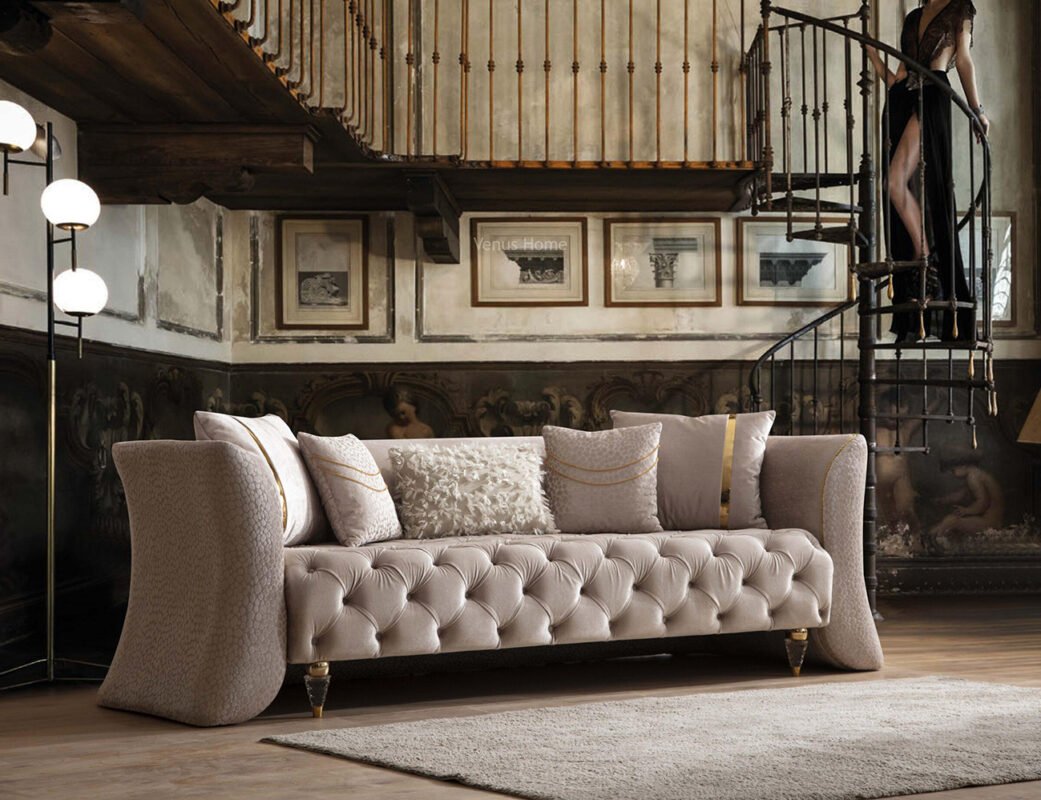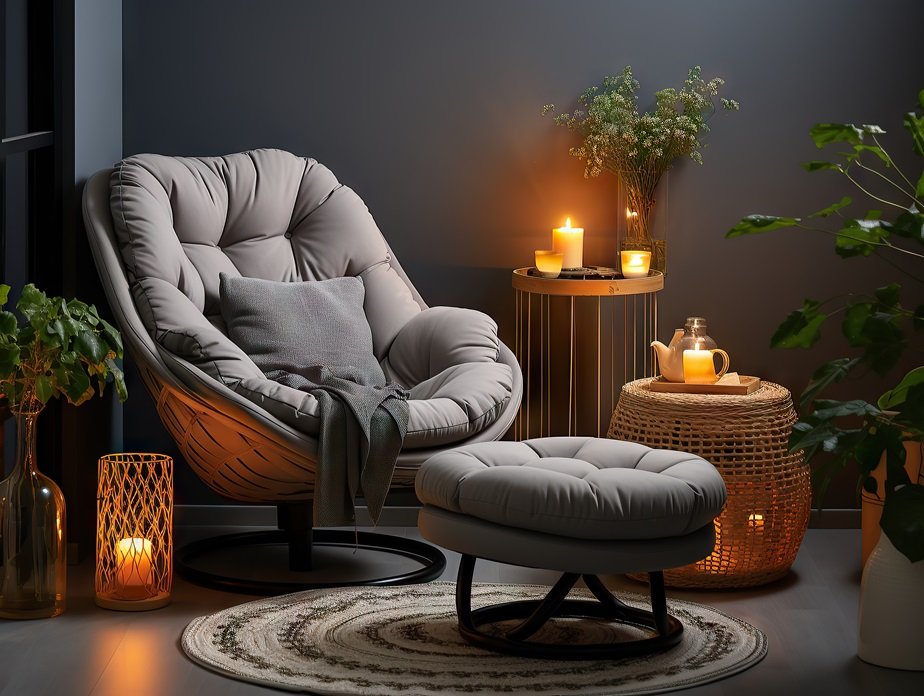Blog
How many years should a couch last?

How Often Should You Get a New Couch?
As you walk into your home after a long day, the familiar sight of your living room welcomes you. The couch, with its soft cushions and inviting warmth, beckons you to unwind and relax. It’s a place where you’ve shared countless memories with loved ones, from movie nights to lazy Sunday afternoons. But have you ever wondered how long your faithful couch will continue to provide comfort and style?
For many of us, a couch is not just a piece of furniture; it’s a centerpiece of our homes, reflecting our style and personality. It’s where we curl up with a good book, binge-watch our favorite shows, and gather with friends and family. So, how do you know when it’s time to say goodbye to your beloved couch and welcome a new one into your home?

Understanding the Lifespan of a Couch
To answer this question, we must first understand the lifespan of a couch. Like any other piece of furniture, the longevity of a couch depends on various factors such as the materials used in its construction, the quality of its craftsmanship, and how well it’s maintained. Imagine walking into a premium furniture store, greeted by the aroma of fine wood and the sight of meticulously crafted furniture pieces. The quality of a couch’s construction is the cornerstone of its durability. When you invest in a couch, you’re not just purchasing a place to sit; you’re investing in craftsmanship that should last for years to come.
- 1. Materials and Construction:
A high-quality couch is typically constructed with a sturdy hardwood frame, such as oak or maple, that can withstand daily use. The upholstery, whether it’s leather or fabric, should be of superior quality to resist wear and tear. Solid hardwood frames, like those used in our premium sofa sets, provide a sturdy foundation that can withstand the test of time. Unlike plywood frames, which may succumb to wear and tear more quickly, solid wood frames offer unparalleled durability. - 2. Foam Density and Upholstery :
The density of the foam used in a couch can significantly impact its lifespan. High-density foam retains its shape and support, ensuring your couch remains comfortable for years. Additionally, durable upholstery fabrics can withstand daily use and maintain their appearance over time, further enhancing the longevity of your couch. - 3. Usage and Maintenance :
How often a couch is used and how well it’s maintained also impact its lifespan. Regular cleaning, proper cushion rotation, and avoiding excessive sunlight can extend the life of your couch. Consider this: Just like a well-built home requires regular maintenance to stay in top condition, your couch also needs care to remain comfortable and attractive, much like how a beautifully crafted piece of furniture can elevate the look and feel of your home, a well-maintained couch can be a source of comfort and joy for many years. The frequency of use is another crucial factor that can determine how long a couch will last. A couch in a busy family room that serves as the central hub of activity will naturally experience more wear and tear than a couch in a formal living room that is rarely used. - 4. Weight and Pressure :
Consider the weight and pressure that your couch bears daily. A couch that regularly accommodates several people or pets may wear out more quickly than one that is lightly used. - 5. Prolonging the Life of Your Couch :
To prolong the life of your couch, consider how you can reduce daily wear and tear. For example, rotating cushions regularly can help distribute weight more evenly, preventing them from wearing out prematurely.

When to Consider Replacing Your Couch
Despite your best efforts to care for your couch, there may come a time when it’s simply beyond repair. Here are some signs that indicate it may be time to replace your couch.
Look for signs of physical damage, such as sagging cushions, broken frames, or ripped upholstery.
1. Visible Wear and Tear:
- Sagging Cushions: If your cushions no longer provide adequate support and sink significantly when you sit on them, it may be time to replace them or consider a new couch.
- Broken Frames: A couch with a broken frame can be unsafe and uncomfortable. If you notice any creaking or instability when you sit on your couch, it’s best to replace it.
- Ripped Upholstery: Tears, stains, or fraying upholstery can significantly detract from the appearance of your couch and may indicate that it’s time for a replacement.
2. Comfort Level: Decreased comfort due to worn-out cushions or structural issues.
- Cushion Firmness: Over time, the cushions of your couch may lose their firmness and become uncomfortable to sit on. If you find yourself constantly readjusting or adding pillows for comfort, it may be time for a new couch.
- Structural Integrity: A couch that has lost its structural integrity may feel wobbly or unstable. This can be a safety hazard and a sign that it’s time for a replacement.
3. Style and Aesthetics: Outdated design or inability to fit with new home decor.
- Mismatched Decor: If you’ve recently updated your home decor and your couch no longer matches, it can detract from the overall look of your living space
- Outdated Design: As styles and trends change, your couch may start to look outdated. If you find that your couch no longer fits with your aesthetic preferences or the rest of your home decor, it may be time for a new one.

Conclusion
In conclusion, the lifespan of a couch depends on various factors, including the materials used, the quality of construction, and how well it’s maintained. While a high-quality couch can last for many years, there comes a time when it may start to show signs of wear and tear. By understanding these signs and knowing when it’s time to replace your couch, you can ensure that your living space remains comfortable and stylish for years to come.
So, the next time you sink into your couch after a long day, take a moment to appreciate the comfort and joy it brings to your home. And if you find that it’s time for a new couch, remember that Venus Home Furniture offers a range of high-quality, durable sofa sets that are designed to stand the test of time.
Imagine a couple, John and Emily, who are shopping for a new couch for their living room. After researching the signs of a quality couch, they visit a furniture store and carefully inspect each couch they are interested in. They choose a couch with a solid hardwood frame, high-density foam cushions, and durable upholstery that they know will last for years to come.
How You Can Extend the Life of Your Sofa
While the quality of construction plays a significant role in how long a couch will last, proper care and maintenance are also essential. Here are some tips to help you extend the life of your sofa:
- Regular Cleaning: Vacuum your couch regularly to remove dirt and debris that can cause wear and tear. Use a damp cloth to spot clean stains as soon as they occur.
- Rotate Cushions: Rotate and flip your cushions regularly to ensure even wear. This can help prevent one side of the couch from wearing out more quickly than the other.
- Avoid Sun Exposure: Direct sunlight can fade and damage upholstery over time. Place your couch away from windows or use curtains and blinds to protect it from sun exposure.
- Use Furniture Protectors: Consider using furniture protectors, such as arm covers and slipcovers, to protect your couch from spills and stains.
- Professional Cleaning: Schedule professional upholstery cleaning every few years to remove deep-seated dirt and stains and refresh the appearance of your couch.
What Kind of Furniture Lasts the Longest?
When it comes to longevity, certain types of furniture are known for their durability and longevity. Here are some examples:
- Solid Wood Furniture: Furniture made from solid wood, such as oak, maple, or teak, is known for its durability and longevity. With proper care, solid wood furniture can last for generations.
- Metal Furniture: Metal furniture, such as steel or wrought iron, is also known for its durability. Metal furniture is resistant to wear and tear and can withstand heavy use.
- Leather Furniture: Leather furniture is known for its durability and timeless style. With proper care, leather furniture can last for many years and develop a beautiful patina over time.
What Should You Consider When Buying a New Couch or Sofa?
When buying a new couch or sofa, there are several factors to consider to ensure you’re making a wise investment. Here are some key considerations:
- Size and Shape: Consider the size and shape of the couch to ensure it fits well in your space and complements your existing furniture.
- Comfort: Sit on the couch to test its comfort level. Look for cushions that provide adequate support and a frame that feels sturdy.
- Style: Choose a style that reflects your personal taste and complements your existing decor.
- Quality: Inspect the construction of the couch, including the frame, cushions, and upholstery, to ensure it is well-made and durable.
- Price: Consider your budget and look for a couch that offers the best value for your money.
FAQ’s of How many years should a sofa last?
-
How long should a couch last?
The average lifespan of a couch can vary depending on factors such as quality of construction, frequency of use, and maintenance. However, a well-made couch can last anywhere from 7 to 15 years or more with proper care.
-
What are some signs that indicate it’s time to replace your couch?
Some signs that indicate it’s time to replace your couch include visible damage such as tears or stains, lack of comfort, sagging, persistent odors, and an outdated style.
-
How can I extend the life of my couch?
Regular cleaning, proper maintenance, and avoiding excessive wear and tear can help extend the life of your couch. Using slipcovers or protective covers can also help protect your couch from spills and stains.
-
When should I consider reupholstering my couch instead of replacing it?
Reupholstering your couch can be a cost-effective way to extend its life if the frame is still in good condition. However, if the frame is damaged or if the cost of reupholstering is close to the cost of a new couch, it may be more economical to replace it.
-
How can I tell if a couch is of good quality before buying?
To determine if a couch is of good quality, check the construction of the frame, the quality of the upholstery, the comfort of the cushions, the sturdiness of the joints, and the reputation of the brand.
-
How do I dispose of my old couch responsibly?
When disposing of your old couch, consider donating it to a charity or organization in need. You can also check with your local waste management company for guidelines on how to properly dispose of large furniture items.
-
Can I customize my couch to better suit my needs?
Yes, Venus premium furniture stores offer customization options for couches, allowing you to choose the size, fabric, and features that best fit your lifestyle and preferences.
-
What are some types of furniture that are known for their longevity?
Some types of furniture that are known for their longevity include solid wood furniture, metal furniture, and leather furniture.
Conclusion
In conclusion, your couch plays a significant role in your daily life, providing comfort, style, and functionality. Knowing when to replace your couch is essential for maintaining a comfortable and inviting living space. By recognizing the signs of wear and tear, discomfort, and lifestyle changes, you can make an informed decision about when it’s time to invest in a new couch.
So, the next time you’re relaxing on your couch, take a moment to assess its condition and consider whether it’s still meeting your needs. When you’re ready to upgrade, remember that Venus Home Furniture offers a range of high-quality, durable sofa sets that are designed to enhance your home’s comfort and style.





